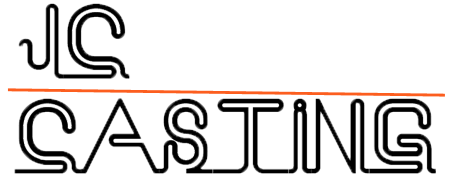Magnesium Casting, Magnesium Die Casting
JC Casting is a magnesium casting manufacturer including magnesium die casting. We have a strong capability of casting a wide variety of magnesium steel alloys. Such as AZ91D, AM60B and AM50. The customized magnesium casting parts and components for industries and applications including automotive, food & dairy, machinery, medical, plumbing, watering, mining, petrochemical, electrical, energy, aerospace, submarine. For your magnesium casting and magnesium die casting needs, we can help you out with our best services.
What Is Magnesium?
Magnesium is the lightest structural material. The weight is about 1.8 grams per cm3. magnesium is the 8th most abundant element in the earth’s crust. It occurs naturally in Dolomite, Magnesite, Carnallite, and Chloride (sea water). Magnesium is produced from sea water, brines and magnesium-bearing minerals which offer unlimited reserves. Magnesium is 75% lighter than steel, 33% lighter than aluminum. It offers component and feature integration and provides high dimensional stability that improves fit and finishes.
Magnesium is a base material for many alloys. AZ91D is the most common magnesium alloy for die casting. It offers very well castability and toughness. It is an ideal material for lightweight, highly durable parts.
Benefits of Magnesium
- Lightest of all structural materials
- 75% lighter than steel
- 33% lighter than aluminum
- High impact resistance
- High strength to weight ratio
- Can be cast to net shape
- Excellent dimensional stability/repeatability
- Abundant material supply
- 100% recyclable
Comparison Between Magnesium and Steel,Plastic, Aluminum
| Comparison | Magnesium Advantages |
| Magnesium VS Steel | magnesium is 75% lighter component consolidation/integration, significantly lower tooling costs, high heat conductivity, complicated thin-walled near net shape and superior dimensional stability/repeatability. Comparison Between Magnesium and Plastic |
| Magnesium VS Plastic | magnesium is stronger, with advantages such as superior stiffness, greater energy absorbing capabilities, higher temperature applications large thin-walled near net shape casting. |
| Magnesium VS Aluminum | magnesium is 33% lighter, superior machining, large thin-walled near net shape casting greater mechanical properties greater corrosion resistance. |
Magnesium Alloys Types
We help our customers to select alloys based on the environment in the part that will function in the performance requirements of the component.
| AZ91D | Most commonly used alloy for high pressure die casting. Offers good strength to weight ratio Very good corrosion resistance Excellent castability. | This alloy is typically used for power-train and mechanical components where toughness is more important than deformation capability. |
| AM60B | Excellent ductility, Energy-absorbing properties, Strength and castability. | Used for automotive die castings for safety components such as instrument panel structures and seat frames |
| AM50 | With a lower aluminum content than AM60, Offers a further increase in ductility but at a slightly reduced strength A slight reduction in castability. | It is typically used where the performance requirements demand elongation properties beyond that of AM60. |
Notes: For applications such as power-train components. Where the operating temperature is above 120 degrees C. (EX. automatic transmission housing). There is a large selection of magnesium alloys available.
Magnesium Die Casting Material Information
| Mechanical Properties | AZ91D | AM60B | AM50A |
| Ultimate Tensile Strength (Mpa) | 240 | 225 | 210 |
| Yield Strength (Mpa) | 160 | 130 | 125 |
| Elongation (% ub 2 in (51mm) | 3 | 8 | 10 |
| Hardness (Brinell) | 70 | 65 | 60 |
| Elastic Modulus (Gpa) | 45 | 45 | 45 |
| Physical Properties | |||
| Density (g / cm³) | 1.81 | 1.8 | 1.77 |
| Melting Range (F) | 815 to 1,108 | 815 to 1,139 | 815 to 1,238 |
| Melting Range (C) | 435 to 598 | 435 to 615 | 435 to 620 |
| Specific Heat (kJ/kg k) | 1.02 | 1.02 | 1.02 |
| Thermal Conductivity (W / m – k ) | 51 | 61 | 65 |
| Electrical Conductivity (MS/m) | 6.6 | 9.1 | — |
| Corrosion Rate (mg/cm²/day) | 0.05 | 0.09 | 0.1 |
Advantages of Magnesium Die Casting
- Lightest of all structural materials
- Outstanding EMI and RFI shielding properties, perfect for connectors and electrical housings
- Withstands high operating temperatures
- Exceptional thin wall capability
- Good environmental corrosion resistance
- Excellent Stiffness
- 100% recyclable
- High conductivity, electrical, and thermal
- High dimensional accuracy and stability
Secondary Operations of Magnesium Die Casting
- Painting using e-coat or powder coat processes
- Machining
